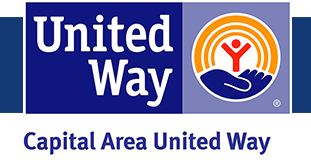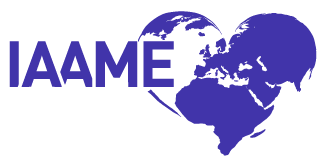Why should I choose Catholic Charities as my agency?
Catholic Charities has been building families through adoption since 1964. We met the stringent requirements to become a Hague-accredited agency—one of only a handful in the State. Our Adoption Social Workers have over 80 years of combined experience in both domestic and international adoptions and are Certified Adoption Professionals. A few have a personal connection to adoption. Click here to read why other couple chose Catholic Charities.
Do you have to be Catholic to adopt through Catholic Charities?
Catholic Charities serves families from a variety of faiths and backgrounds because of our Catholic tradition.
What is international or inter-country adoption?
Intercountry adoption is adopting a child from a country other than your own through permanent, legal means.
What countries do families adopt from?
Catholic Charities facilitates adoptions from Hague and non-Hague accredited counties. For an up-to-date list of Hague-convention countries from which US families adopt, go to the US Department of State website about Intercountry Adoptions. For status updates for all counties, click here.
Who can be adopted?
Adoption laws vary. A child must qualify for adoption under the laws of his or her country of origin in order to be adopted. Each country has different requirements for children to be eligible for adoption. For more information visit the US Department of State website about Intercountry Adoptions.
Who can adopt?
For basic requirements, visit the US Deparment of State website about Intercountry Adoptions.
Do I have to work with another agency or can CCDBR handle everything for me?
For international adoptions, you will need to choose a placing agency. Catholic Charities can refer you to our partner agencies.
Am I required to attend any training sessions?
Families adopting through Catholic Charities are required to attend a 10-hour training course. This Hague-compliant course is offered once a quarter and consists of 5 two-hour sessions.
What is the Hague Convention?
The Hague Convention on Intercountry Adoption is a treaty that provides guidelines for the intercountry adoption process with the goal of protecting the children being adopted across country borders. The United States has implemented the Hague Convention and has accredited U.S. adoption agencies who are providing adoption services from Hague countries.
Catholic Charities of the Diocese of Baton Rouge received Hague accreditation through the Council on Accreditation (COA) on April 1, 2008 as a Primary Provider of adoption services and, as such, has no restrictions on its ability to provide intercountry adoption services in countries that are part of the Hague convention.
Currently, CCDIOBR works with a number of primary providers to offer services for intercountry adoption to families in the state of Louisiana. We, also, continue to provide services for adoptions from non-Hague countries. The accreditation standards apply only to countries that have ratified and implemented the Hague treaty. The primary providers include:
All God’s Children International http://www.allgodschildren.org/
Catholic Charities Baltimore http://www.cc-adoptions.org/international-adoptions.html
Great Wall China Adoptions http://www.gwca.org/
Holt International http://www.holtintl.org/
Wide Horizons for Children http://www.whfc.org/
For more information about the Hague Convention, please visit
http://adoption.state.gov/hague_convention.php
http://www.adoptivefamilies.com/articles.php?aid=1400
What does an adoption cost?
For international adoptions, fees are different if you are adopting from a Hague country rather than a non-Hague country. Families also pay fees to placing agencies which vary depending on the agency they choose. Click here to view Catholic Charities International Adoption fees. Click here to learn about our domestic adoption fees (sliding scale based on income). Here are some excellent resources to help out with the costs:
- Federal Adoption Tax Credit http://www.irs.gov/taxtopics/tc607.html
- Employee Adoption Assistance Benefits–Many employers help their employees when they adopt by reimbursing adoption expenses with a cash benefit of several thousand dollars. Call the National Adoption Center (800-TO-ADOPT) or visit http://www.davethomasfoundation.org/Our-Work/Adoption-Friendly-Workplace for materials to guide you in requesting this benefit from your employer.
- How to Make Adoption and Affordable Option published by the National Endowment for Financial Education http://www.pueblo.gsa.gov/cic_text/family/adoption/
- The National Adoption Foundation offers grants and loans to help with adoption expenses. www.nafadopt.org or call 888-627-8767.
I don’t make very much money. Can I still adopt?
USCIS and some foreign governments have income requirements. Please click here to contact our international social workers to discuss your specific situation.




